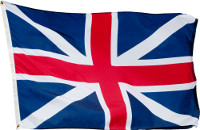Among Brits, there exists a divide between London and the rest of Britain, possibly heightened by the recent Olympic Games and the media branding of ‘Planet London.’ The divide is not one of animosity, but simply of location, size and opportunity. Britain is well-known for being a diverse nation.
For this reason, London tends not to reflect British culture fully. Britain has a number of villages, towns and cities which vary dramatically, from the South Wales valleys and its beautiful countryside, to the lively urban life in the city of Birmingham in the Midlands.
About London
London (the city) has the eighth biggest economy in Europe, ranking above Sweden, Finland and Hungary (as whole countries). The capital of the UK is the world’s most ethnically diverse population. While there are areas of deprivation, generally London holds a place on the world’s political and economic stage, which other areas of Britain cannot compare with.London is the epicentre of British politics, the royal family and with it, tourism. It is a bustling place, with similarities to other world capitals such as New York, Paris and Sydney. The transport system is heaving, the streets are full and the shops and nightlife on offer are wide and varied.
It is a young, liberal and multicultural city. Four in every 10 Londoners are between the ages of 20 and 44, which makes it an ideal city for things to do and for young professionals. The city allows a number of freedoms and due to its size and urban feel, it is renowned for its liberal attitude. It is ethnically diverse and in just one London borough (Brent), there are more black and Asian people than in the whole of Scotland. In central London, one in four people are from an ethnic minority (which compares to one in 20 in the UK as a whole).
There are a number of employment and education opportunities available in the capital city. London’s affluence can be seen in its housing market. Owning residence in London is worth nearly twice as much as the national average for homes in Britain.
London is the financial and business capital of the UK, whereas manufacturing industries tend to be placed in other areas of Britain.
It boasts amazing architecture and attracts many visitors from across the globe, thanks to its mix of modern and old – cosmopolitan city life v tradition. It boasts such attractions as the Houses of Parliament, Tower of London and Buckingham Palace. London holds a number of landmarks and is steeped in history and culture.
Other parts of Britain
Simply due to the vast number of people residing in London (and visiting), it shows all angles of British life, but is, in a way, different from the rest of Britain due to its capital status and unique history. Britain also boasts forests, beaches and mountains that you won’t find in London.
London has the largest population in Britain by a long way with 7,074,262. Birmingham has the next highest population with a count of 1,020,589 and is followed by Leeds with 726,939.
Every city in Britain has a unique feel to it, perhaps because of its dialect, size or background. While people in various parts of Britain feel an affinity with being ‘British,’ they are also proud to be from their unique and individual areas.
British highlights
Tourists who visit Britain would be missing much of its charm if they were to only visit London. While London has some lovely parks (such as Hyde Park), some areas of Britain benefit from outstanding scenery and beauty, and some of the other leading UK cities have a number of attractions. British highlights include:
– The beautiful Lake District, with its mountains and lakes and English traditional town and villages.
– The highest peaks and beautiful mountain ranges including Snowdonia (Wales), Ben Nevis (Scotland) and Scaffel Pike (England).
– The vibrant cities of Cardiff, Brighton and Manchester, which offer quirky shops and a lively nightlife.
– The amazing beaches and coastlines, including the surf capital Newquay (Cornwall).
– Quaint historical towns and cities including York, Canterbury and Oxford.
The scenery in these examples contribute to a great quality of life and although the weather is not always ideal conditions to appreciate the great outdoors, many tourists and expats who venture outside of London, see many breath-taking sights and attractions. While some of these areas do not offer the same financial/employment opportunities as London, they are part and parcel of what British culture has to offer.

